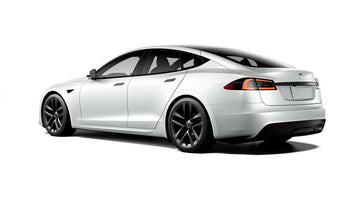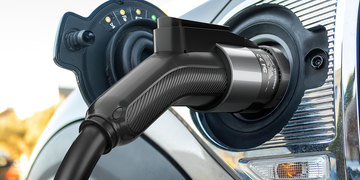How much does EV charging cost per charge? Overall, charging your car at a public EV charging station is more expensive than charging at home. Public charging systems that charge based on kWh average anywhere between $0.30 and $0.60 per kWh compared to $0.16 per kWh at home.
As the popularity of electric vehicles (EVs) continues to grow, one common question on the minds of potential EV owners is, "How much does it cost to charge an electric vehicle?" The cost of charging an EV varies depending on several factors, and understanding these variables is essential for making informed decisions about the economic aspects of electric vehicle ownership.
The primary factor influencing the cost of charging an electric vehicle is the local electricity rate. Electricity rates can vary significantly based on geographical location, time of day, and utility provider. It's crucial for EV owners to be aware of their local electricity rates and any time-of-use pricing structures that may apply.
Charging Speed and Efficiency:
Electric vehicle chargers come in different levels, ranging from Level 1 (standard household outlets) to Level 2 (faster home chargers) and Level 3 (fast public chargers). The charging speed affects the cost per charge. Faster chargers generally cost more to install but can significantly reduce charging times. Additionally, the efficiency of the charging process can impact overall costs.
Battery Capacity and Range:
The size of an EV's battery and its driving range play a crucial role in determining charging costs. Larger batteries require more energy to charge fully, and the charging cost will increase accordingly. Conversely, EVs with longer ranges may require less frequent charging, impacting overall monthly charging costs.
Charging Location:
The location where an EV is charged also influences the cost. Charging at home using a residential electric vehicle charger is often more cost-effective than relying on public charging stations. Public charging stations may have different pricing structures, including flat rates or pricing based on time or energy consumption.

Government Incentives:
Some regions offer incentives or subsidies for electric vehicle owners, including reduced electricity rates during off-peak hours or financial incentives for installing home charging stations. These incentives can significantly impact the overall cost of charging an electric vehicle.
Smart Charging and Time-of-Use Plans:
Many utility providers offer time-of-use plans that provide discounted electricity rates during off-peak hours. Smart charging solutions and mobile apps enable EV owners to take advantage of these lower rates by scheduling charging during cost-effective periods, helping to manage and reduce charging expenses.
How much does EV charging cost per charge?
The cost of charging an electric vehicle (EV) can vary based on several factors, including the electricity rates in your area, the charging method used, and the specific electric vehicle model. Charging costs are typically measured in kilowatt-hours (kWh).
Home Charging (Residential): Charging your EV at home using a standard household outlet or a dedicated home charging station will depend on your local electricity rates. On average, it might cost around $0.10 to $0.20 per kWh.
Public Charging Stations: Public charging stations may have different pricing structures. Some charge per kWh, while others charge a flat fee for the entire charging session. Prices can range from $0.10 to $0.30 per kWh or more, depending on the charging network and location.
Fast Charging Stations: Fast charging stations, which provide a quicker charge, may have higher costs. Prices can vary widely, but they are often higher than home charging rates.
How much does EV charging cost per charge? The cost of charging an electric vehicle is a multifaceted consideration that depends on various factors, including electricity rates, charging speed, battery capacity, and government incentives. EV owners can optimize their charging costs by understanding these factors and making informed choices about when, where, and how they charge their vehicles. As the electric vehicle market continues to evolve, advancements in charging infrastructure and energy management technologies are likely to contribute to even more cost-effective charging solutions for EV owners.





